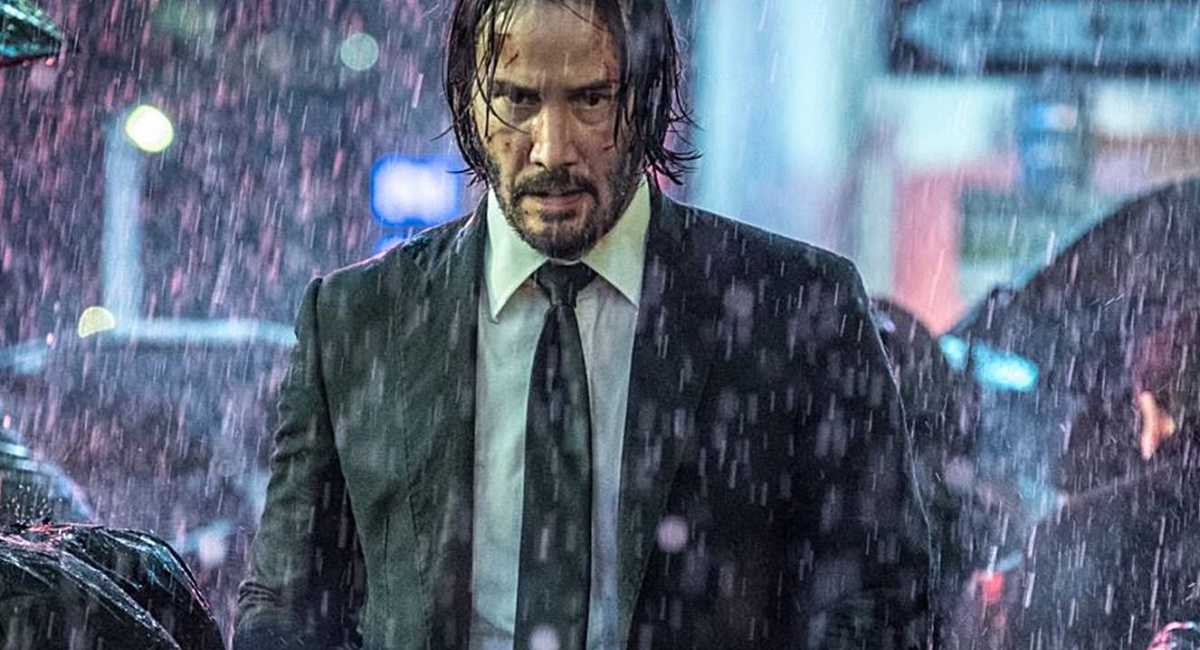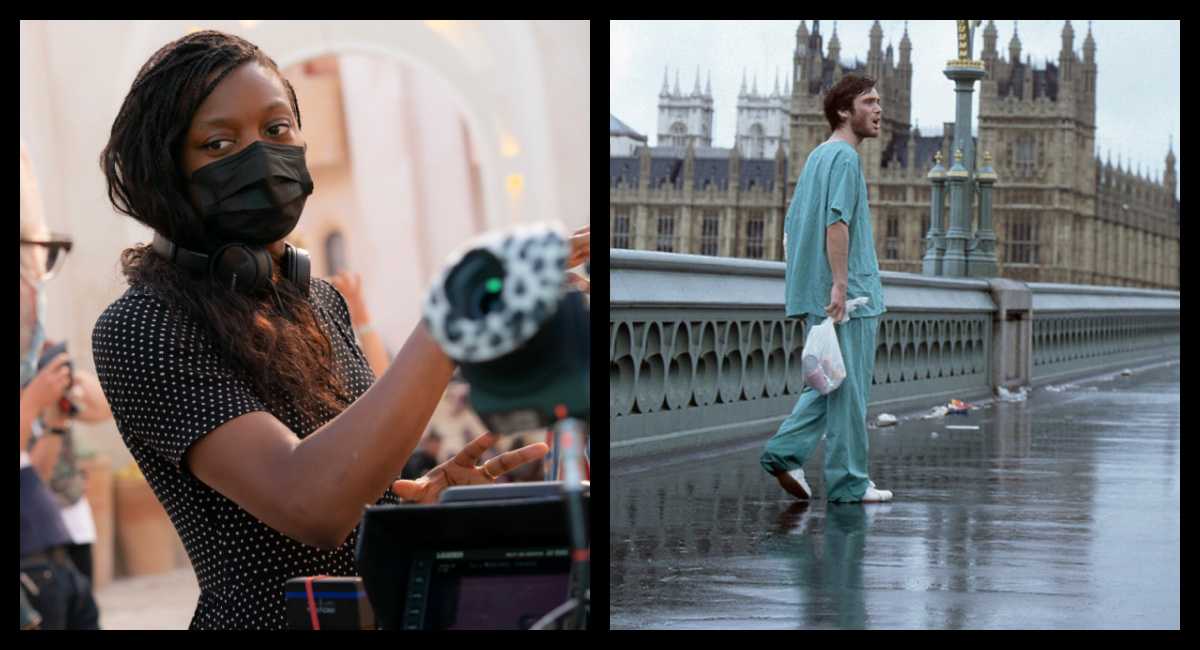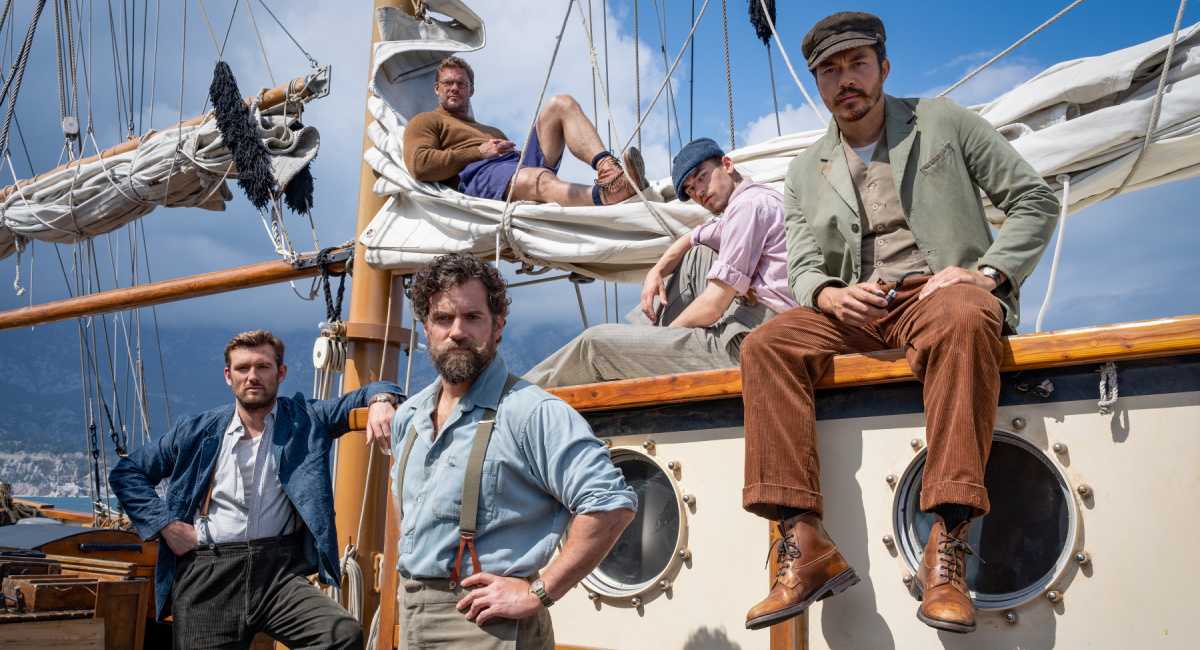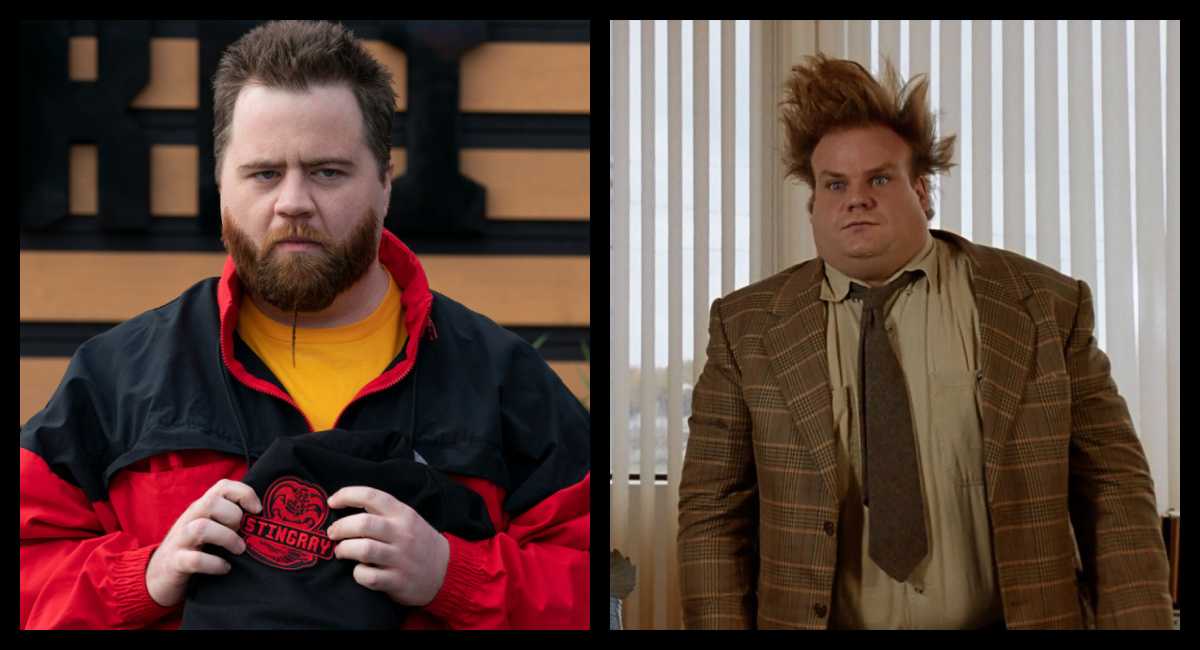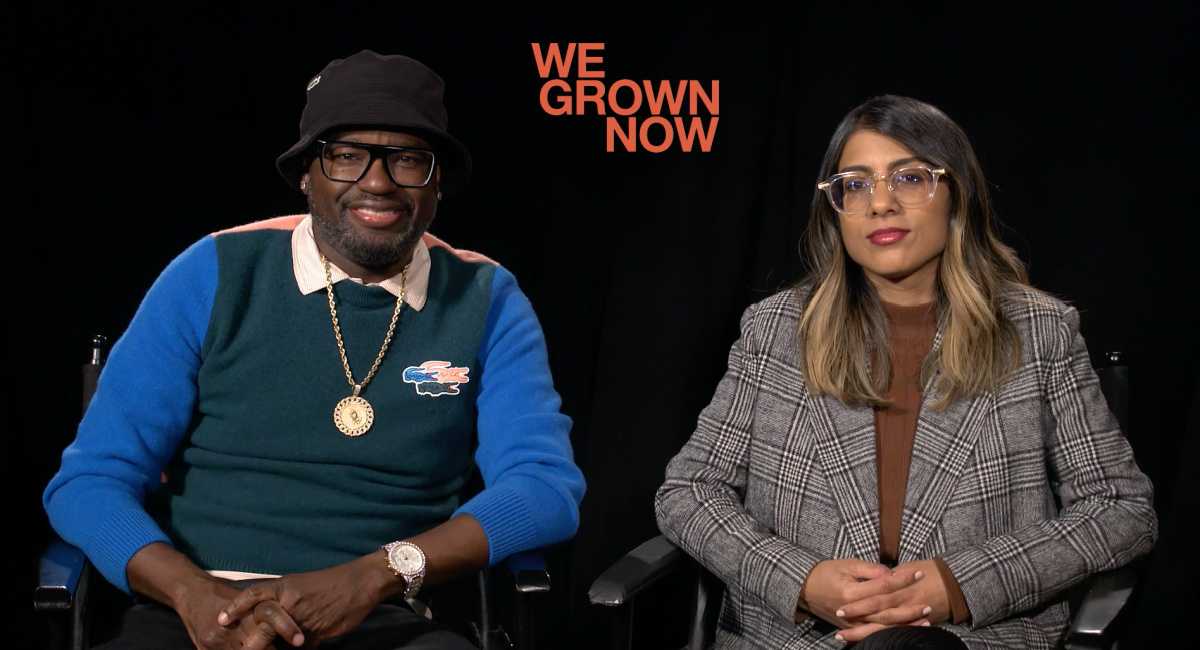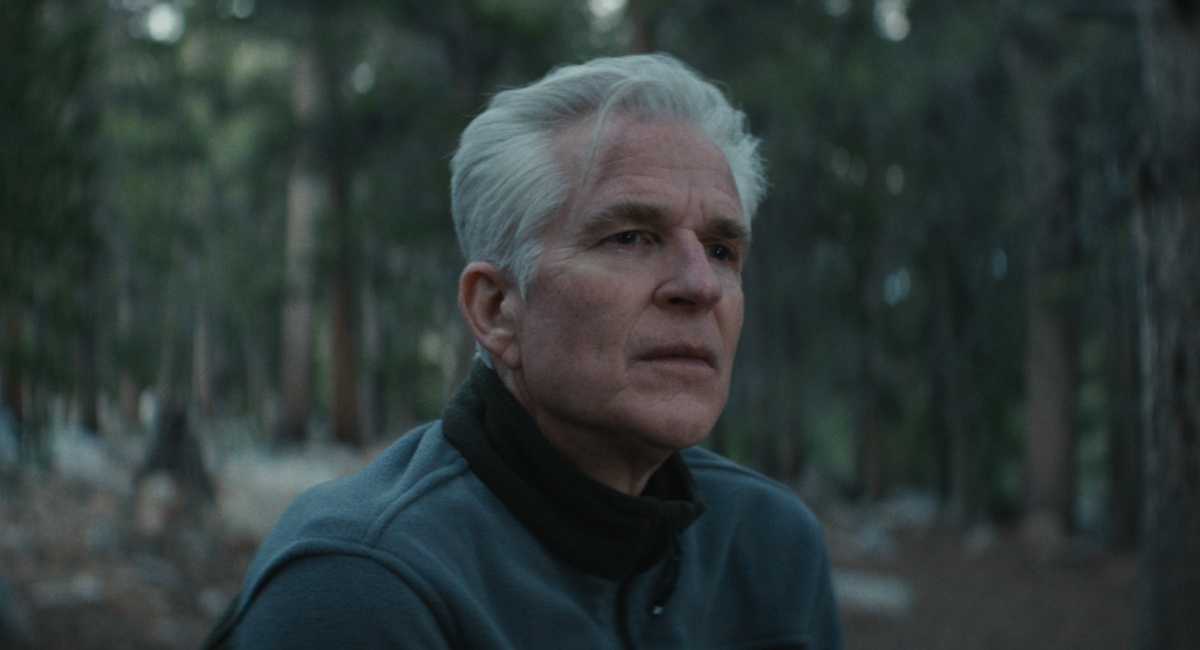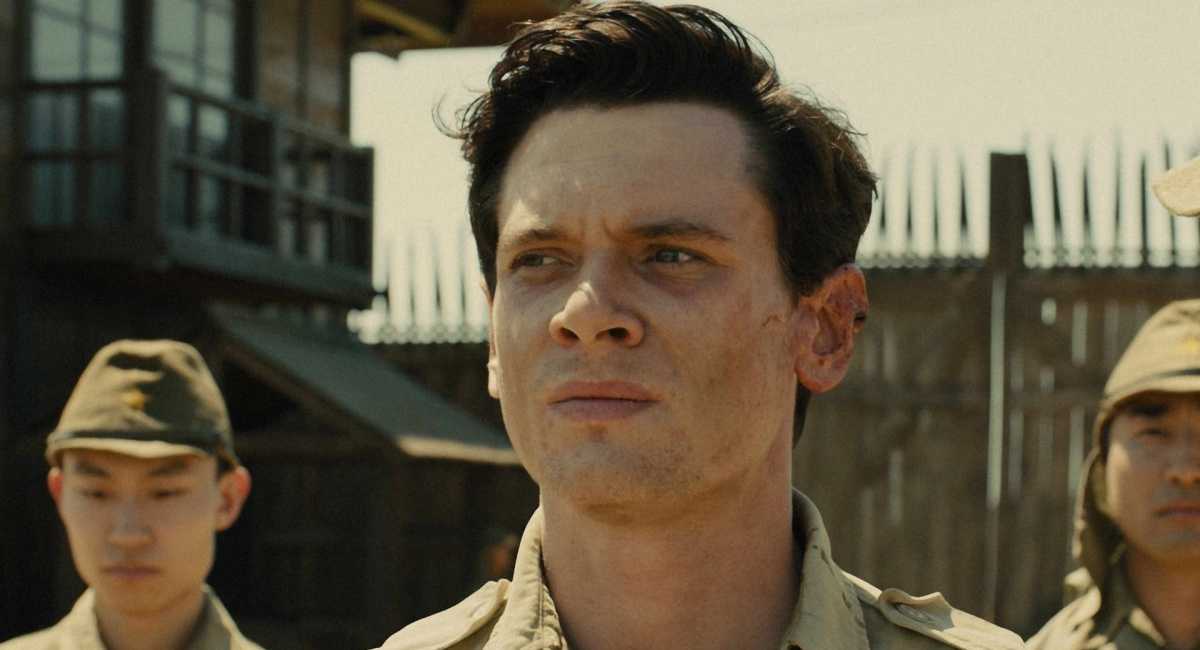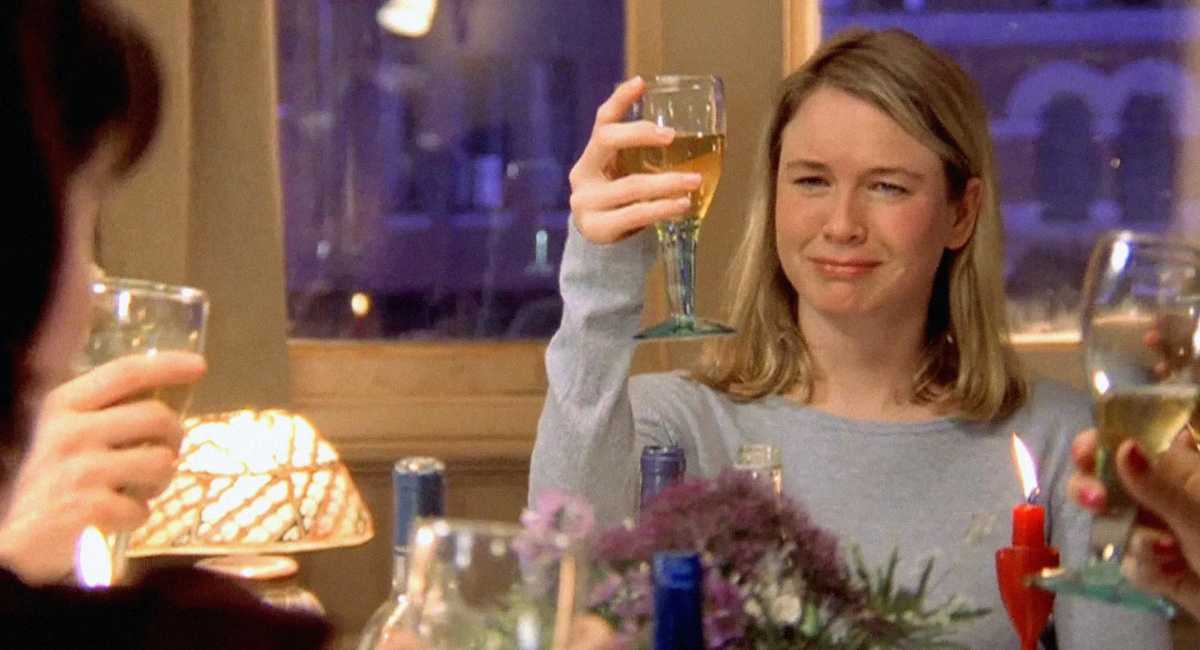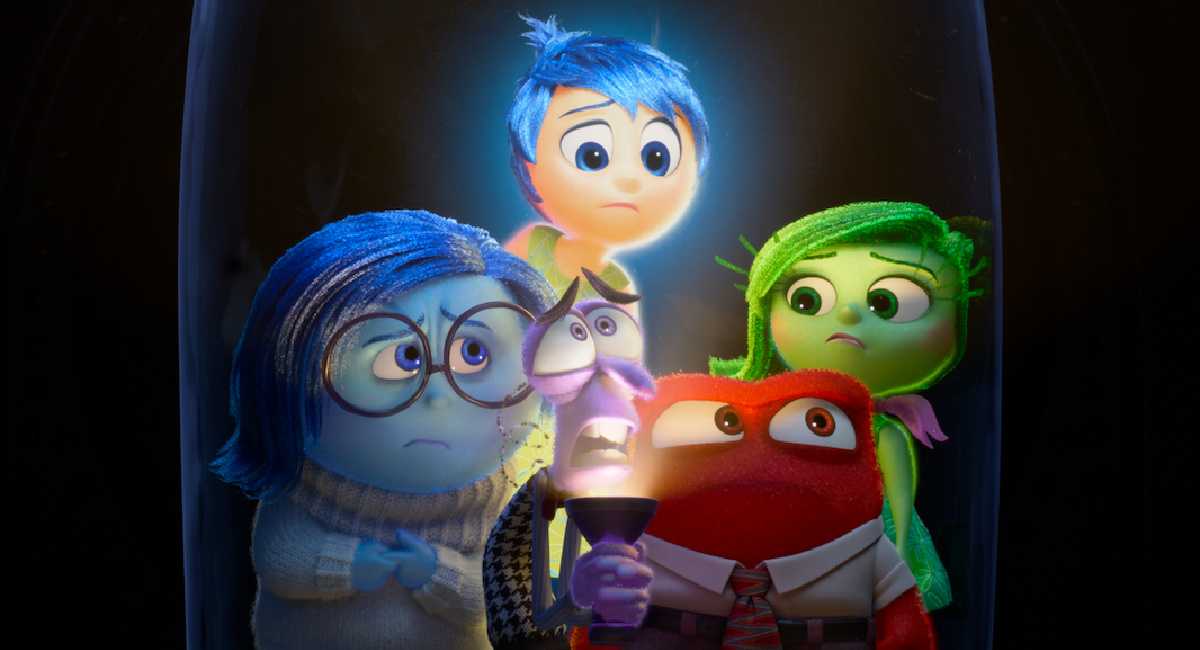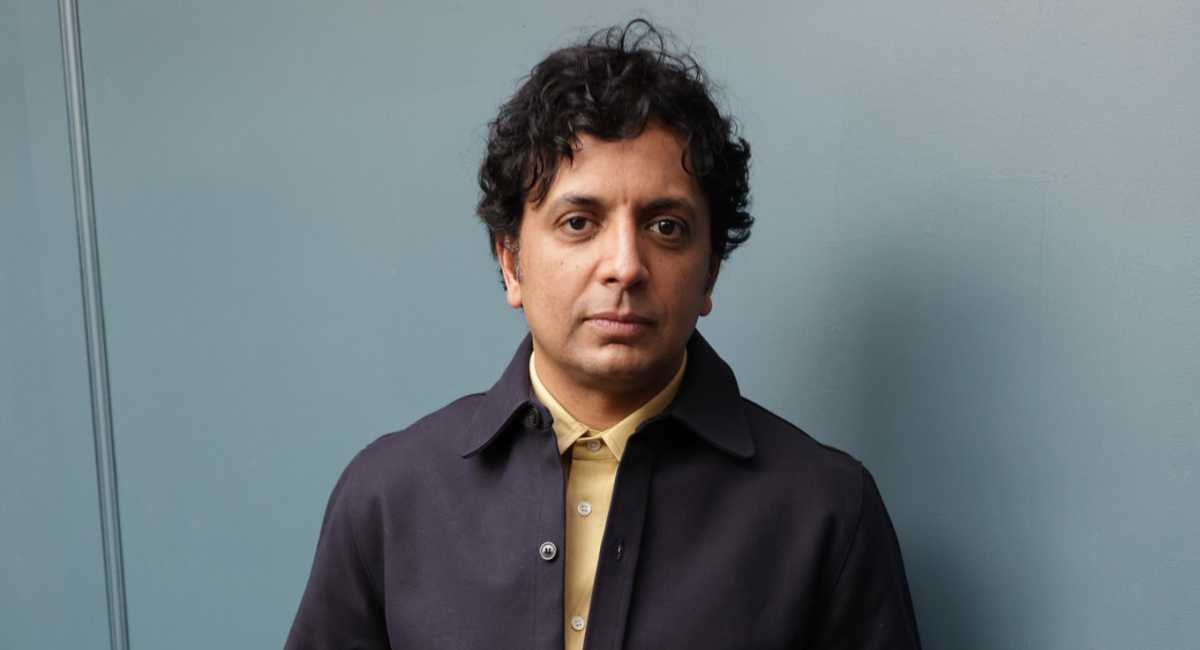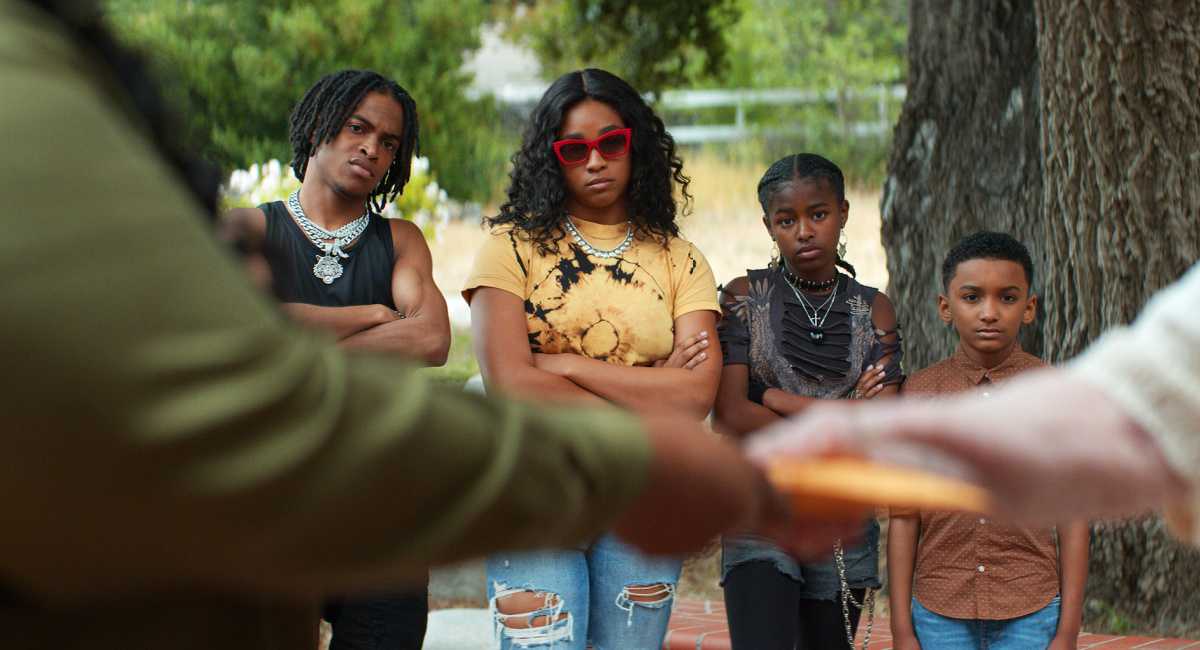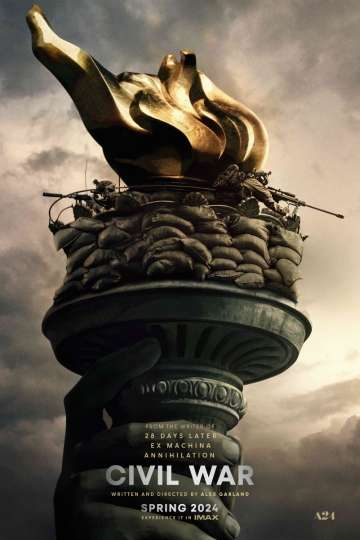Ken Burns' 'The Vietnam War' Captures the Epic and Intimate Qualities of America's Divisive Conflict
The Civil War," "The War," "Baseball," "Jazz," "Mark Twain," "The Central Park Five" –- a vivid and compelling life on screen.
Now, in trademark epic form, Burns is tackling one of the most consequential, divisive and, several decades after the fact, still raw facets of the American experience: "The Vietnam War." His latest is a ten-part, 18-hour magnum opus on PBS that –- assembled over the course of ten years –- explores in revealing detail, the years-long conflict in Southeast Asia that constantly tore at the country's cohesion and frequently tested its soul.
Working in concert with his longtime collaborator Prohibition," Burns tapped a plethora of various archival material –- including historic photos, film and news broadcasts, freshly-discovered home movies and unheard recordings from within the White House, and startlingly candid interviews with over 80 witnesses from all sides of the conflict at home and abroad –- to evoke the essence and impact of the most painful and polarizing war this country waged in the 20th Century.
And as Burns, Novick and producer Sarah Botstein reveal to Moviefone, they had little notion when they started on this particular journey a decade ago, just how potently the lessons and conundrums would speak to the nation caught up in all-too-familiar-sounding division in 2017.
Moviefone: A journey this long as to have some surprises along the way. Were there some things that were dramatic revelations in the course of doing this?
Ken Burns: Many, many, many things, and some of them come in tiny little facts, some of them come in big facts – Ho Cho Minh's centrality, he shares power. By the end of episode one, he's not in total control of the Politburo, and we learn of new leaders, and that's a revelation I think that really shocked us, and as we began to work on our film, really changed it. So here we were adding another character that the popular wisdom about Vietnam just doesn't have, and he's an important part of the story, and that was wonderful.
Or just little tiny events: how the Gulf of Tonkin proceeded, which is not so little. We plowed through to, and to understand a little bit more detail and some of the motivations for why certain ships, and certain navies, and certain reactions took place, I think is revelatory.
Then of course it's all the little tiny things that our veterans are saying to us, that are just sometimes not even words. It's a twitch of a cheek, or the tremor of a lip, or something like that that speaks volumes. Or the Gold Star mother, her son fought, watching across her face, and you realize, oh my God. Just watch her in the pain and suffering of having to relive something. But then sharing to us, but also understanding – and I think this was their calculus, in the most generous and human way – that by sharing their story, they would help to sort of lessen the pain of other families. That is a selfless act.
Those intimate moments are juxtaposed with these revelations of iconic figures. For me, one of the startling things was listening to John F. Kennedy's private recording, and the regret you could hear in his voice, the concern about the war. Finding those gems, and the seismic impact that they have – tell me a little bit about bringing the intimacy to the iconic.
Lynn Novick: That's a great way of putting it, really. That's exactly what we tried to do. It's an organic process. When we started, we didn't quite realize the richness of the presidential audio material. I think we knew it existed, but we hadn't listened to it at such length. So we started off with some of the more obvious selections –- I would say like "the greatest hits."
We realized what a treasure trove that was, so we signed one producer whose job was "You're in charge of audio," and she spent hours and hours and hours listening to the raw material, which is available online, and also consulting with the foremost experts. Because a lot of this material actually hasn't been transcribed.
So it's available, but you have to know what you're looking for. So if you want to go, "Okay, August 15, 1967 –- what was LBJ talking about on the phone?" And you have to listen to ten phone calls, and each one's an hour. How are you going to find it? To find the material that hadn't been sort of surfaced, we had help. But then it was the usual process, like we do for interviews, and footage, and everything else was sort of distilling down to the essence.
We started off with each clip was like two minutes long, three minutes long, and then we had to boil down to, what do we really need to hear of what they're saying? And we had a lot more of what you see in the film. For all of us, one of the revelations of the project, was getting this sort of eavesdropping, inside scoop on what our leaders were actually saying to each other and to their inner circle while they were coming out in public and saying sometimes the exact opposite. If you're running a country, you can't share your doubts about everything with the public every minute either.
So we understand the challenges of leadership in a war: if we had tapes of FDR, maybe he would be worrying before D-Day that it's all going to go to sh*t. But we don't have that. We have the public pronouncements and maybe some letters. So it just raises questions in your mind about what is the nature of leadership, and what does it take to run this country? And it's also profoundly disillusioning to hear the doubts they had from the beginning, and yet, they continue to escalate the war.
Work on this project, which is so much about a schism in the way that Americans feel and think about a certain topic, and having worked on documentaries about the Civil War, and even the national divisions in the beginning of World War II –- tell me a little bit more about what you think people are going to see, trying not to read too much into the parallels of today, given that we're at a point of great schism in our thinking once again.
Burns: We're obligated as filmmakers, and I think in the case of something as complex as Vietnam, we didn't even have the luxury to sort of pay attention to this. This is a film that was begun in 2006, where we felt there were lots of parallels with the Afghanistan and Iraq, and we've always been mindful of that –- and more than that, super conscious about not to point arrows at it.
So rather than say that we think this will happen or that we hope this will happen, we just know that, because history is this way and human nature is this way, that this film will resonate in the present. And it is our fervent wish that the divisions that metastasized in Vietnam that are on vivid display today might have the possibility of at least offering an opportunity for those people willing to suspend the binary, and hear what the other side has to offer, or the other sides, in the case of the Vietnam. I don't just mean the three sides, but all of this.
And what we quickly discovered, was that we often focus, as your question does, on the obvious political differences, meaning, "I disagree with you." But in point of fact, these differences go inside most of the characters that are in our film. So we're dealing with kind of epic internal, psychological, and spiritual existential struggles within people about what to do ethical, all sorts of different dilemmas, and that is a really good place to be. If you can forgive yourself, you can forgive a lot of other people. A lot of this is that our default position is often a certainty that nobody really believes.
Lynn's just made a perfect case with regard to the tapes. Lyndon Johnson can go out and say, "Everything's hunky-dory," and then go in, and you can hear this thing just writhing in agony and angst and worry about it. And the same thing with McNamara and later on, there's cold calculation that were part of Nixon and Kissinger, but you can hear the machinations of policy being formed, and then outside, it's a whole different kind of tactic that's conveyed.
We like the fact that we've got two presidents here, Johnson and Nixon, who are revealed as intimately as some of our ordinary characters who have offered up the way in which they themselves have been torn on the bias, not just the country. That, to me, is an exciting possibility.
I know from my own experience with my stepfather, who did three tours of duty in Vietnam, and is only just now starting to talk about it a little. Did you find in the ten-year process of making the film a sort of loosening of tongues gradually, or were people ready to share their experiences right away?
Novick: Over the course of making the film, I don't think so, per se. I think we just gravitated towards people who were ready to talk. It wasn't possible for us to convince people who were super reticent, and there are many. But it did feel that most people we approached wanted to share their stories.
Burns: And we weren't having arguments with people. We weren't bringing our beliefs to the interview, nor were we pairing them with somebody like a son-in-law, who might be in opposition to them. But we do know that once the film is out, you have the possibility of maybe watching together, and maybe having those kinds of conversations.
Novick: What's a really interesting question is why our veterans elected to talk, and partly it would be the universal experience of a combat. If your stepfather was in combat, or experienced any kind of traumatic experience, or saw things that were really disturbing to him, that he might not be able to actually be afraid to speak about it, because it would be too destabilizing to him, and that would be unique to any war soldier coming home: that civilians can't understand, like Ken was saying, what you've been through.
But in Vietnam, for Americans, they came home to a country that was very conflicted about the war. So the inner conflict Ken was talking about, you also walked off the plane into that. You're dealing with having had traumatic experiences, perhaps, or disturbing experiences in the war, and you're wrestling with that, and then you get off the airplane, and you come here, and there's people, protesters with signs, and having to sort of face that you're not going to have the warm embrace of a country grateful to you for your service for winning a war, as their fathers have had.
That is almost as traumatic as going to war in the first place. So it's like trauma leveled on trauma, and unpacking all of that. That's what our film, we think, will help people do, and make it possible for these conversations to happen, because it's more complicated than any one of the things I just said.
Would you say that even 50 years later this subject is a hot button?
Novick: Yes. A lot of it has to do with the very nature of our political discourse today, which is so poisoned. Regardless of what you do in your heart of heart's belief, your own political politics would suggest that you almost have to retroactively adjust those beliefs into a kind of hardened silo of a certain set of positions, left or right, that don't permit you very much latitude.
So yeah, what we hope is that the film will show such a variety of perspectives, the kind of "Rashomon" that it is, that it's going to be impossible to hold on to certainty, when in fact this is the demonstration of the uncertainty principle.
How did this experience change the two of you?
Burns: I joined the Navy SEALs! [Laughs] No -– it's profound. It's really profound. All of us, we've all been through a lot of stuff together, and we've had to wrestle with a lot of really complicated things. It's been the most challenging and the most satisfying of anything we've done. I don't recognize the person who started and the person who finished.
Novick: It's been such a privilege to get to know some of the people. Really spending time with these just remarkable human beings, even if it was just an hour for an interview, or if it was they were an advisor, or people that we didn't interview that we got to know over the course of the project, the witnesses that lived through it, each one of them gave us something.
On any project, we accumulate kind of life lessons, and some just understanding something deeper. But here, there was just this overwhelming sense of resilience and endurance. At the very end, you hear something where someone's reading something, and the last thing that's said is that they endured. That was a really profound thing. Life is extraordinarily difficult. So we've seen these people, all of them, they are enduring. That has affected us in our very core of our being, I think. Sounds so pretentious to say that, but it really is true. You can't even really put words around it, but I think it's true.
The other thing I just have to say is that we just had this extraordinary collaboration of the three of us, with Geoff Ward and our editors, and with Trent Reznor and Atticus Ross. Because of the material we were given, you check your ego, yourself, everything at the door and just make the best film you can make. It's been an incredible experience for all of us.
Everything starts with the conversations that you are having with the people that you're filming, and after people see this many more conversations are going to result.
Burns: That's what we hope. When we say we hope this initiates a national discussion, that's really important, of course, if that can take place. And what would that mean? Is it that the entire country would come into the stadium that we would talk, or that maybe it would be conversations would happen on Fox with a certain sort of not the way Fox is, and stuff would happen on MSNBC, not the way MSNBC is.
But actually, it may just be as one of our own coworkers said is that, I went and instead of calling my dad and talking to him for two minutes – "Hi, Dad, how you doing?" "Fine", "Great," "Goodbye." – they talked for 45 minutes about "What you were doing? What you felt," all of that sort of stuff. We think those kind of interior, intimate conversations are equally as important as the national ones, because of course in their totality, they represent the possibility for transformation and reconciliation, and the things that you'd want to have happen out of such a divisive moment.
How about on the educational side? What are you excited to see happening as younger kids really are exposed to this story for the first time?
Sarah Botstein: One of the most exciting things for us is, once the film's been out on the air and the country has seen it, then the teachers get their hands on it, we've spent the last year and a half developing curriculum for both high school history and high school English classrooms, because English classrooms often have more flexibility in how they can teach a subject like this than history classrooms.
What we found in my now focus group of two groups of a couple hundred kids is just that they are extremely interested in learning from this specific period in our history, and how to apply it to what is happening now. Which nobody could have predicted in 2006.
But there's a lot that's very, very relevant to their lives, and whether it's the conflicts around the world counterinsurgency and nation building and what's our role in a democracy to "What's my role as a citizen?" and "How can I question what's happening in Washington?" and "How did we get here?" It's exciting to see another generation of people interested in the subject, and interested in what public television has to say and the work that we do.
Burns: And we like the fact that, for documentaries, they're often evanescent. They grab ahold of a contemporary hot button issue, and that passes. And what we like is that films that we made 30 or 40 years ago are part of a conversation that's still going on today.
That's the great beauty of history too, that because it does reflect the moment as well as the past moment, then you have a chance for these things to be evergreen, and have some durable educational value, and that's exciting, as well as just the popular entertainment. We don't set out to make educational materials. We're making a film. We're making a story. We want to be artists. Every time you set out, you want to make the greatest film ever made! And one should have that arrogance.
Novick: And you always fall short.
Burns: And you always fall short.
Novick: But it's okay.
"The Vietnam War" premiers on PBS on September 17. Check your local listings.


